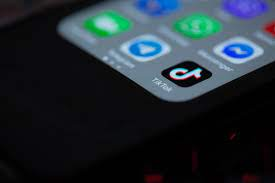Why Cancel Culture Doesn’t Work
January 27, 2023
Cancel Culture is as popular as ever, and it seems as though almost everyone on Tik Tok and Twitter are just patiently waiting for the next celebrity screw to happen to give social media a conversation topic for the next few weeks. Although cancel culture has good intentions behind it, such as exposing public figures for horrible actions and making sure everyone has consequences, it has spiraled into a simple trend of hunting down the next canceled celebrity, and many influencers or celebrities who have committed horrible crimes are still able to live normal lives with a growing fanbase as if nothing happened.
Many celebrities who are deemed cancel-worthy are getting away with their criminal allegations and still having thriving careers. Actor Ansel Elgort, who has been accused of sexual assault allegation from multiple women is still flourishing, with Hollywood actively ignoring his intense controversies and alleged crimes, Elgort was still hired in the “West Side Story” movie in 2021 and even has upcoming projects on streaming services that are still hiring him, despite all he has done.
JK Rowling has been canceled countless times on the internet due to many transphobic tweets, and accusations of racism within her books. However, she is still worth millions of dollars and her Harry Potter property continues to produce millions of dollars of revenue each year. The canceling JK Rowling has endured has had minimal effect on her income, life, or personal success.
James Charles is another example of canceling not working as Charles has been accessed multiple times over the past five years of pedophilia and messaging many young boys online. Though James did get canceled on the internet, this is more of a crime than a simple screw-up. Charles didn’t seem to suffer the consequences of his alleged actions as he still has 24 million subscribers on YouTube. Charles still makes collaborations with other well-known celebrities and hasn’t suffered any legal penalties.
Another reason why canceling culture doesn’t work is that it relies on people’s interests. With people’s attention span at an all-time low due to social media, especially Tik Tok and its short-formed videos, the canceling of celebrities only seems to last a few weeks until the internet moves on to a new discussion topic. The public vilifies the deserving target for a short period before they move on to the next. Very few have experienced career-ending controversies due to the internet’s lack of focus on something for more than a few weeks.
Aaron Rose, a corporate diversity and inclusion consultant says that “Mainstream internet activism is a lot of calling out and blaming and shaming. We have to be honest with ourselves about whether calling out and canceling gives us more than a short-term release of cathartic anger.” Cancel culture is more of a quick way to release anger about a certain celebrity than an actual way to make sure people get held accountable.
The tendency for people online to get bored very fast also leads to an issue of people calling out celebrities that happen to be the most popular at the time or involves something crazy instead of people who deserve serious repercussions. When Dixie D’amelio spat out a snail during a video of her family eating dinner, the internet went crazy with many people hating Dixie and leading to her losing thousands of followers. Dixie was ripped to shreds due to this small action, but other influencers such as those mentioned above who have serious crimes pinned against them barely get any repercussions, due to the internet finding it more boring than an insane snail story.
Student at FMHS Sophia Watson agrees, saying, “I think that some people can take it very far but they take little things farther than the more serious celebrities that get canceled.”
This pick and choosing of who the internet decides to cancel or not are also due to the growing obsession and stan culture many people have with celebrities and influencers. Due to TikTok and Instagram, celebrities can seem much closer to you than they are. Being able to see what a celebrity is doing every day and keeping up with them online brings the average person closer to what a famous person is up to, which is why many people have grown attached to certain celebrities, almost seeing them as a friend.
Watson states that “I think that some people stick with certain celebrities because they have mentally made such a connection with them that sometimes it’s hard to completely block someone you loved so much out of your life because of an action.”
Despite being labeled problematic for a couple of weeks, many celebrities can avoid serious repercussions for their actions and though it is good to call out even the most famous of people for their actions, cancel culture has become too distracted with petty issues than being able to hold real wrongdoings accountable.

